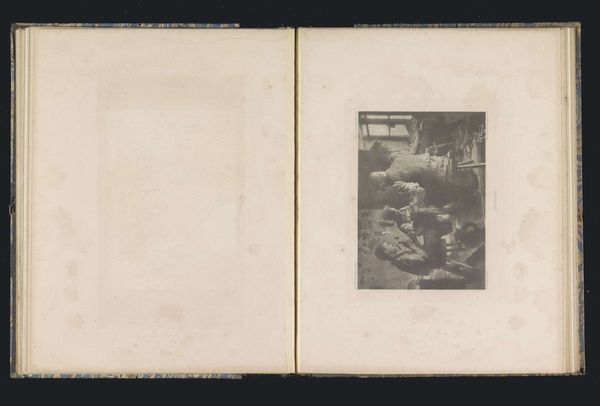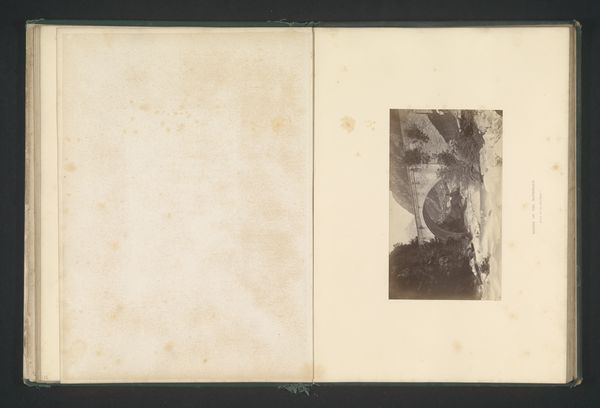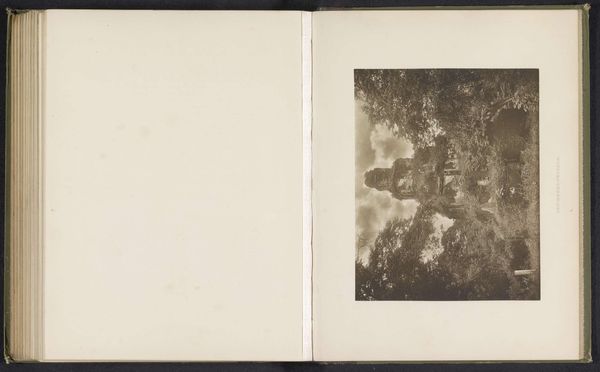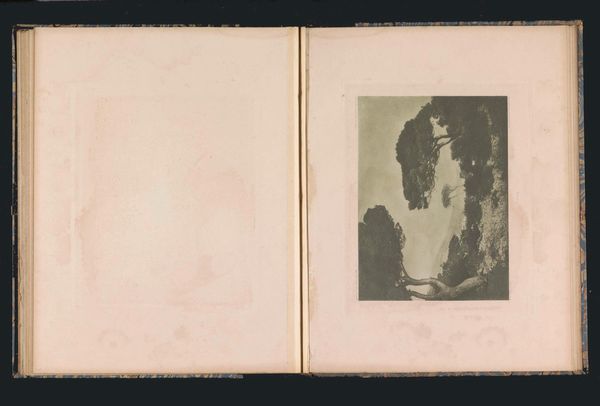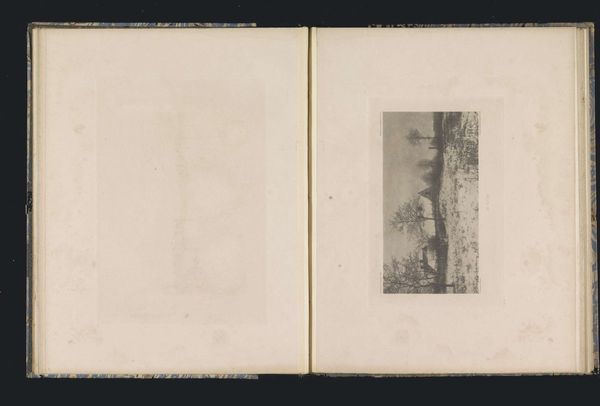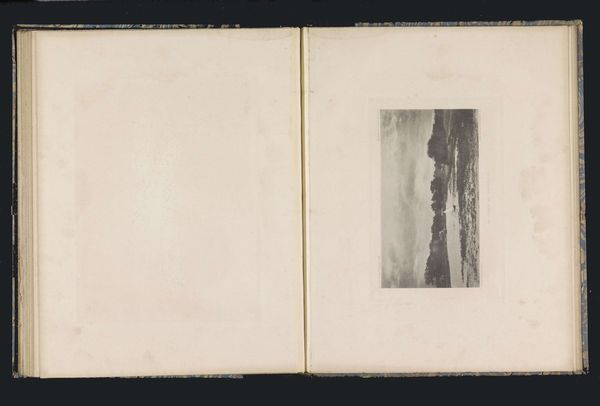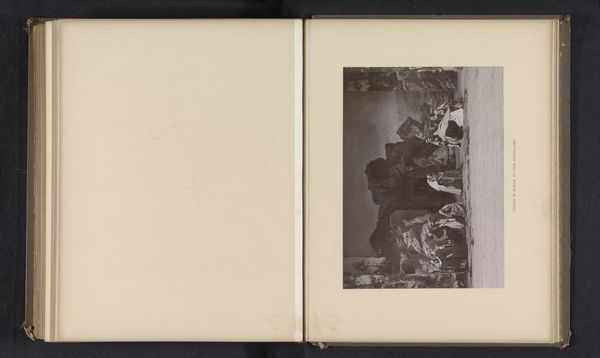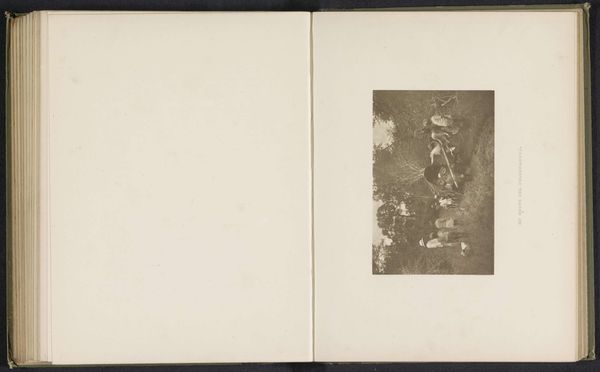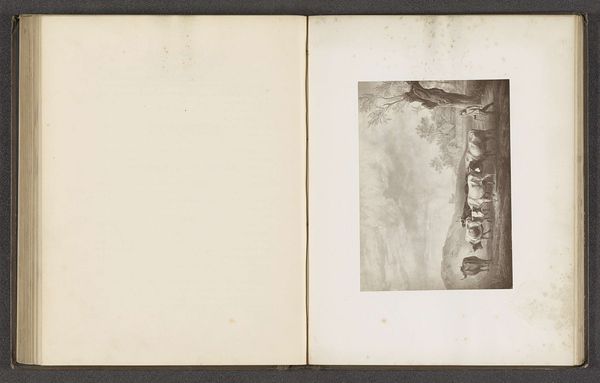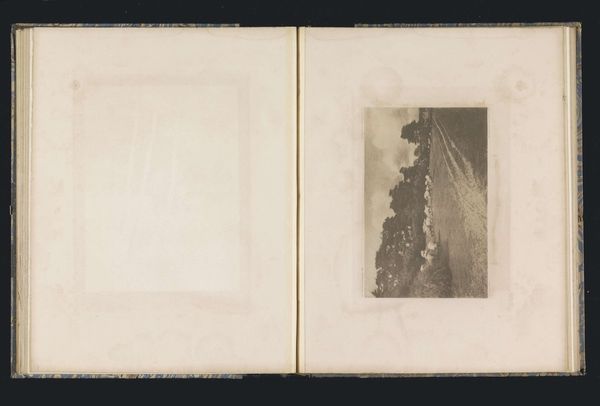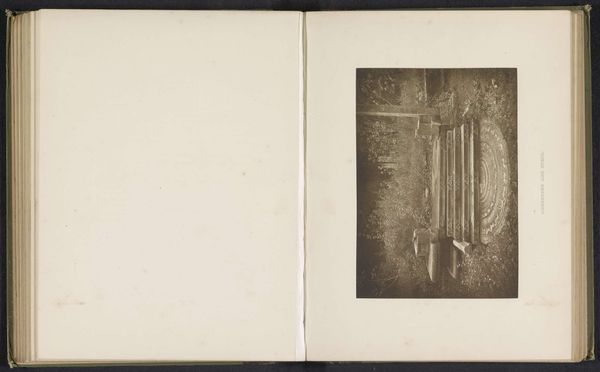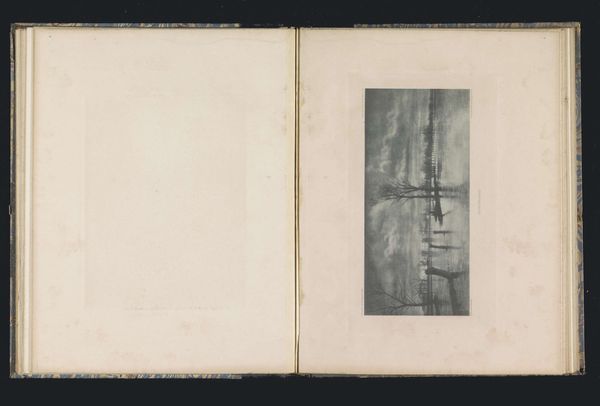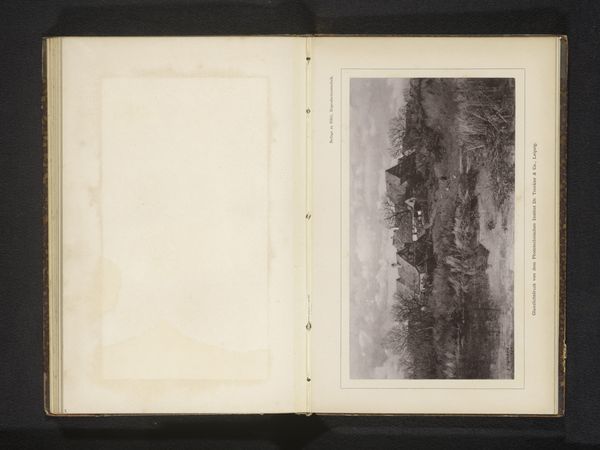
Dimensions: height 136 mm, width 179 mm
Copyright: Rijks Museum: Open Domain
Editor: This gelatin silver print, titled "Zaterdagmarkt te Brussel," is credited to A. Cumont and dates to before 1899. There's a real sense of the everyday here; I'm curious to hear your perspective. What do you see in this piece, beyond a simple snapshot of a Saturday market? Curator: It's fascinating how Cumont captures a slice of Brussels life from over a century ago, isn't it? For me, this image is more than just a photograph; it's a social document. Consider the context: the late 19th century in Brussels was a period of intense industrialization and urbanization. Does this photograph celebrate or critique that growth? Look at the indistinct crowd: who are they, really? What social class, and gender, is mostly visible? Editor: I see what you mean about the lack of clarity regarding social class. You almost can't pick anyone out. I'm so used to crisp, sharp images. This reminds me that images can be deceptive or used deceptively. Curator: Exactly. And what's excluded from the image is just as crucial. What communities or groups of people aren't here, but should be considered when discussing Brussels? Editor: Given its title, "Zaterdagmarkt te Brussel," it highlights the absence of anyone except the possible Bourgeois, obscuring all other faces. The camera acts as an undeniable instrument of power. Curator: Precisely. And how might that photographic 'truth' have shaped perceptions and policies of the time? Whose voices are silenced or amplified? Editor: I never really considered those kinds of social or even philosophical questions related to the history of photography! That really shifts my understanding. Curator: Thinking about images this way challenges the notion of photography as objective truth, prompting us to analyze the photographer's role and the societal forces at play. Now how might street photography have influenced present-day surveillance issues? Editor: This really broadens my understanding; thinking about social classes changes everything! It is less about who is there, but who is purposefully not.
Comments
No comments
Be the first to comment and join the conversation on the ultimate creative platform.
